“Now more than ever we need portrayals of strong, independent, beautiful, complex and creative women”: A Private War director Matthew Heineman explains what drew him to Marie Colvin’s story
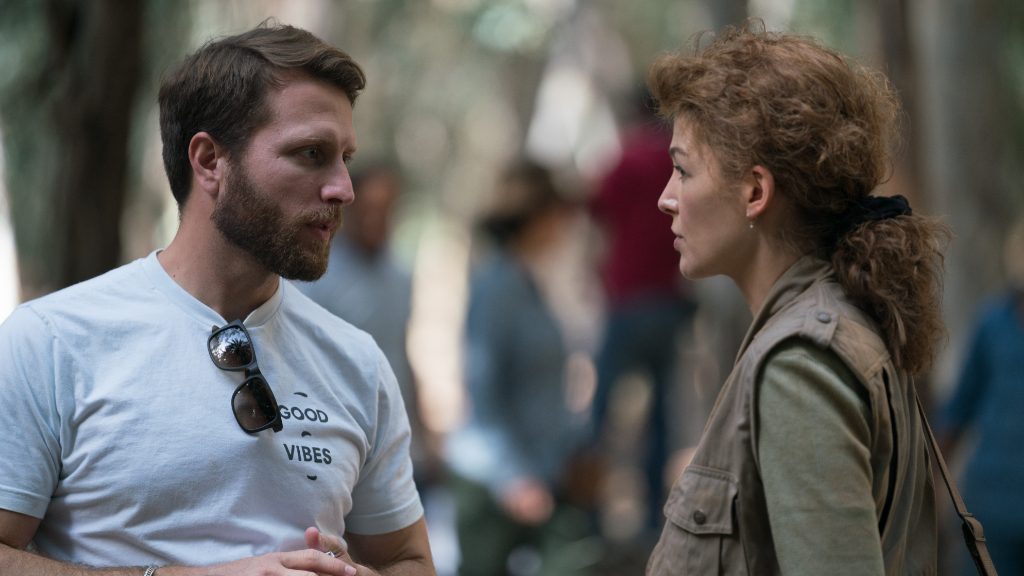
Academy Award-nominated and Emmy-winning documentary director Matthew Heineman turns his hand to narrative film with his feature debut, A Private War.
The movie charts the lengths to which legendary war reporter Marie Colvin would go in order to uncover the truth about conflicts around the world, as well as exploring the impact her work had on her psychological health.
Rosamund Pike is wildly impressive as Colvin in her most career-defining moment since Gone Girl, carefully capturing the journalist’s nuances – from her ability to move seamlessly between martini-sipping parties and the front line where most men wouldn’t dare go, to her chain-smoking and drinking to repress the deep trauma suffered from all she had born witness to in aid of giving voice to the voiceless. Jamie Dornan, Tom Hollander and Stanley Tucci complete an excellent supporting cast as the reporter’s photographer Paul Conroy, her editor Sean Ryan and her lover Tony Shaw respectively.
A Private War is a masterfully crafted picture in which Heineman’s skill as a documentary filmmaker is brought to bear, functioning to immerse us in Colvin’s world so that we may fathom her extreme bravery in facing danger during conflicts but also the demons lurking when she tried to return to normal life.
We had the privilege of speaking to Heineman about why he was driven to tell Colvin’s story, the extensive research and preparation that went into Pike’s transformation to play the reporter and how he hopes the film will prompt viewers to reflect on our current era.
Hi Matthew, lovely to speak to you, and thanks so much for taking the time to speak with us. Congratulations on a really incredible film. Marie Colvin makes for such a compelling subject – what made you decide to move from the documentary to narrative film form and why did you decide to make a movie about this reporter?
You know, I was approached with an early draft of the script and it just spoke to me in a very profound way. My mother was a journalist, and I have a background in journalism and documentary films so I just deeply empathised with Colvin’s desire to put a human face to conflicts around the world. It’s something I’ve tried to do in my own work. I also understood the cost and the toll that it took on her – always being away and hardly at home – that was something I related to as well. Then I think on a broader level, in this world we’re living in today, with journalism and journalists under attack, I thought it was a very important movie to make. To highlight people who are out there fighting for truth and shedding light on dark corners of the world.
Rosamund Pike seems so totally committed to the role and carefully captures the nuances of Colvin’s character and mannerisms. Did you already have the actress in mind when you first started working on on the film, and what was involved in the preparation for Pike to be able to embody the character to this extent?
I met Rosamund at a screening of my last documentary, City of Ghosts, and we just connected. She had such a profound understanding of Marie even at that early stage and it just seemed like she was such a great fit. With this being my first narrative film, I really wanted somebody who could get their hands dirty and I got that in spades. After deciding to work together, we spent a year gaining the trust of Marie’s friends and colleagues, essentially going on a research journey of understanding all the different shades and fabrics that made her who she was, which influenced a rewrite of the script. Physically, obviously, there was a lot to do as well. She spent months working with a dialect coach getting that sort of Long Island husky tone, how to lower her voice, she worked with a dancer to understand how Marie held tension in her neck and how she would gesticulate with her hands and how she would carry herself and walk. So it’s really amazing to see her transform into this part.
You’ve also got incredible performances from the rest of the cast, with Jamie Dornan as Paul Conroy, as well as from Tom Hollander and Stanley Tucci. How was it casting and working with those supporting actors as well?
I was so grateful to have an amazing cast. You know, never having worked with actors before, that’s the sort of the question that I always get: what was it like to do that for the first time? For me, for the documentaries that I make, you know, they’re experiential documentaries. Part of shooting those types of documentaries is developing the deep rapport and deep trust with your subjects so that they can be themselves, they can unveil layers of who they are, they can show you and allow you to be there in the most intimate of moments. And I found that that skill was quite transferable with actors. The bedrock of that relationship is trust and respect and being comfortable and being able to challenge each other and push each other. So it’s been amazing to transfer those skills into making this film.
We go from some pretty epic scenes to very intense, intimate moments, where Colvin reaches some extreme emotional states. What were some of the challenges that you found in shooting the film and were there any particular moments you found difficult to pull off?
I mean, the first time I walked on set it was the first time I’ve ever been on a movie set. In the documentaries that I make it’s generally me either alone or with a tiny crew. So, walking on set and having a hundred people staring at me was kind of an interesting experience! I mean obviously, the bigger war scenes were quite difficult to make and we didn’t have a huge budget so every single second and resource mattered. I think at the end of the day I didn’t want to make a biopic, I wanted to make a psychological thriller, to try to understand what would provoke someone to go to the most dangerous places, and then the effect that had on her mentally and physically. And so, while, yes, the bigger scenes were quite difficult to orchestrate, to prepare for and execute, in some ways, the very intimate moments – the moments of exploring the trauma, exploring the PTSD, which were something important to me to explore and I don’t think are very well-depicted in films – in some ways those were harder to pull off just because it’s a such an interior state of mind. We had to create a cinematic language, both to extract that in Rosamund’s performance but also to think about how we constructed it in the edit room.
You mentioned the state of journalism and it being under attack; what reflections on journalism do you think you make in this film – particularly following a person who is searching for truth, and willing to go to extreme lengths to get it? The movie also seems timely in its presentation of a truly multi-faceted female character: Marie is so complex, and also kind of badass, consistently showing immense bravery as well as vulnerability. There are lots of men around her that don’t want to follow her to the places she’ll go. Do you see that the film has a lot to say in our current era?
Yeah, you know, I think I’ve always tried to make films about issues that are relevant and pressing in the sort of national and international conversation. It’s both the goal and the challenge. Now more than ever we need portrayals of strong, independent, beautiful, complex and creative women and Marie was all of those things. You know you’re complex, I’m complex, we’re all complex human beings. I think films are often reductionistic in their portrayals of people and so I really wanted to embrace all the complexities of who Marie was.
Is it true that just at the end of January a judge ruled that the Syrian government was, in fact, liable for her death?
Yeah, so a federal judge in the US ruled that the Syrian government, the Assad regime, was liable for her death and had deliberately targeted and assassinated her for reporting on the siege of homes, for exposing the truth. This is not a new story for me or anyone who knew her or knew her story. However, the legal condemnation of brutality and stifling opposition voices was something that we’ve seen happen throughout history and throughout time. But I think hopefully it sets a precedent – it’s a very symbolic victory. Then the punitive damages, the monetary damages, are almost less relevant and it’s perhaps not even realistic that they’ll seek them; it’s more of a symbolic victory.
Now more than ever, having films that discuss the value and the need for journalism and investigative journalism is really important. What do you hope might be the impact of the film? Do you think that it will provoke debates and get us to realise something that we might have lost from our current journalism industry?
Yeah, I mean Marie was in some senses a bastion of an old-school type of journalism that we’re not seeing as much anymore. There’s less and less money in foreign bureaus, there’s less and less money in long-form investigative journalism, which is what she did. She didn’t just parachute in and out of situations, she was there, she spent the time, she embedded herself in conflicts around the world. So, you know, hopefully it’s a reminder of the importance of that. But I think in a broader sense, I strongly believe that the film has an amazing ability, in a very divided world, to bring people together, to make people stop to think and to ponder the world that we’re living in. And I think that’s what Marie tried to do with her writing: she created an empathetic connection between conflict that seemed so far away and brought it very close to home. I hope that this film, in a small way, continues the work that she fought her entire life for and that she died for as well.
Can you very quickly just tell me what you might work on next, after this project?
I’m retiring, I’m done.
I don’t believe you.
Good. I’m doing a documentary series on human trafficking and I’m developing another narrative project as well.
Well, thank you so much for taking the time to speak with me and congratulations again on a really fantastic, moving and amazing film.
Thank you. Thanks a lot.
Sarah Bradbury
A Private War is released nationwide on 15th February 2019. Read our review here.
Watch the trailer for A Private War here:

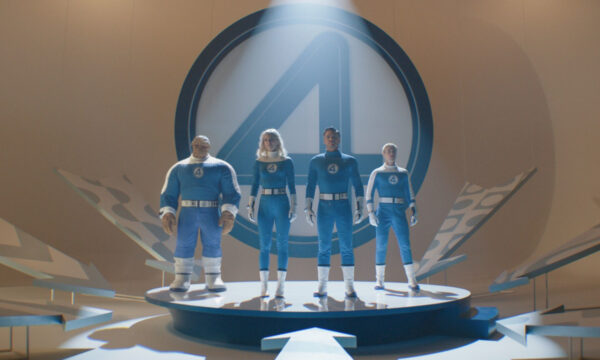
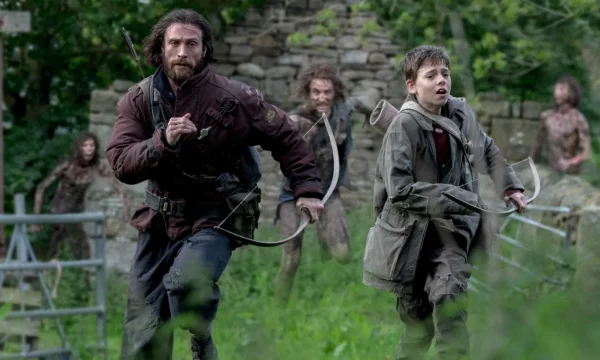
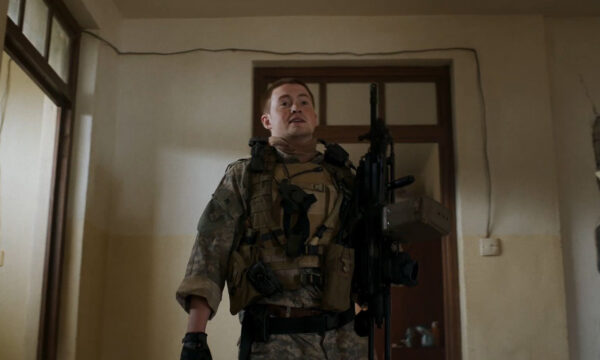

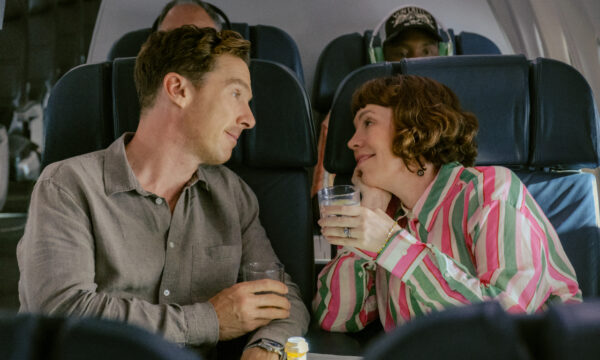
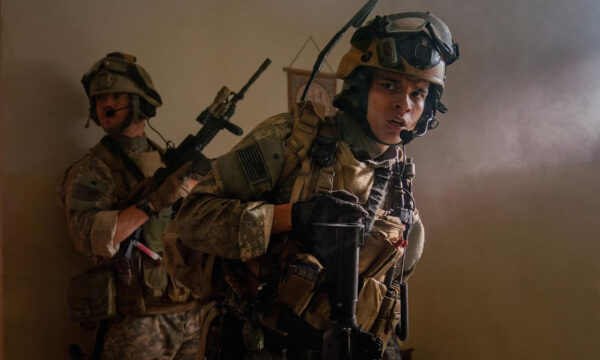
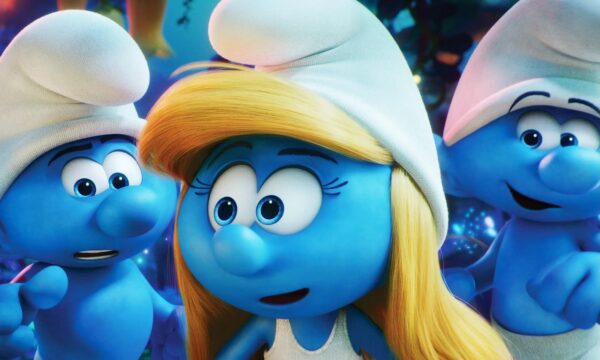
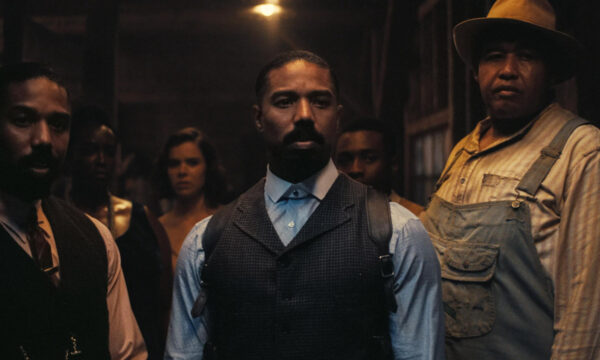
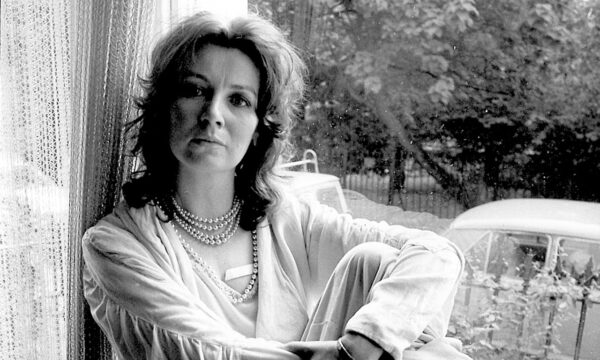














Facebook
Twitter
Instagram
YouTube
RSS